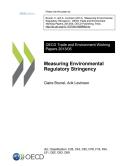In less than a decade, clean energy transitioned from novelty products to the mainstream of world energy markets. The sector emerged not so much in a linear fashion as episodic – in fits and starts associated with the worldwide economic downturn, continent-wide debt crises, national policy uncertainty, and intense industry competition. Through it all, however, the clean energy sector moved inexorably forward, with overall investment in 2012 five times greater than it was in 2004.
Although 2012 investment levels worldwide declined 11 per cent, to US$ 269 billion, the clean energy sector weathered the withdrawal of priority incentives and initiatives offered by governments in numerous key markets, demonstrating its resilience. Reliable clean energy investment data have been collected for nine years now. Looking at the data in three-year increments, average clean energy investment increased by at least US$ 90 billion triennially – from an average of US$ 64 billion in the 2004-06 period to an average of US$ 156 billion in 2007-09 and US$ 245 billion in 2010-12.
This report identifies the broad range of policy measures required by national or federal governments to promote and facilitate the greening of industries. It has been prepared as part of the United Nations Industrial Development Organization (UNIDO) Green Industry initiative, which focuses on ways that developing countries can green their industries and accelerate growth in their environmental goods and services sector. One of the key objectives of the initiative is assessing the effectiveness of governments in developing countries in supporting the greening of their industries through national strategies, policies and integrated governance structures.
This report - which contains case studies of Melbourne, Vancouver, Paris, Toyama and Portland - offers a comprehensive understanding of the compact city concept, its role in today’s urban contexts, and the potential outcomes of compact city policies. It examines compact city policies across the OECD in relation to green growth objectives and the role of indicators in tracking policy performance. The report proposes compact city strategies and ideas for achieving better outcomes and highlights governance challenges for implementing practical compact city strategies. Importantly, it highlights how urban spatial policies can help foster economic growth and development while preventing environmental degradation and climate change. The report thus addresses a central concern of the OECD Green Growth Strategy, and provides an important contribution to it.

